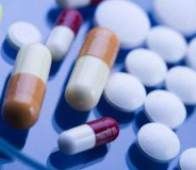 Many essential and life-saving medicines such as those used in treatment of diabetes and hypertension are not available in the market as drug wholesalers and retailers complained of squeezing margins following the new price control regime.
Many essential and life-saving medicines such as those used in treatment of diabetes and hypertension are not available in the market as drug wholesalers and retailers complained of squeezing margins following the new price control regime.
Drug retailers and wholesalers say they are not able to buy enough stocks or even offer discounts on the maximum retail price to their customers because of reduced margins and companies are refusing to compensate them adequately, which has led to a shortage of certain medicines with very little margin.
A Business Standard survey of the market also showed medicines, including antibiotics, contraceptives, anti-hypertension and anti-diabetic drugs, were out of stock at various locations around Delhi. Some of the pharmacies have also recently put out notices, saying: “no discount please, we give quality”.
The new Drugs Price Control Order, 2013, which came into effect from May, has slashed the marketing margin on essential medicines, while increasing the span of price control.
Under the earlier DPCO, 1995, drug retailers and wholesalers were entitled for a minimum margin of 16 per cent and eight per cent, respectively, on regulated medicines.
On the rest of the medicines, retailers were allowed a minimum margin of 20 per cent, whereas wholesalers were entitled a margin of 10 per cent.
However, with the new price regulation in place, the retailers and wholesalers have taken a double hit.
While more drugs have come under the scheduled category, where margins are lower, the margins are also squeezed from 16 per cent to 13.79 per cent for retailers
Besides, the calculation of margins has also changed, claims All India Organisation of Chemists and Druggists (AIOCD) secretary general Suresh Gupta.
According to Gupta, the retailer margin, which was earlier calculated on MRP, has to be now on the stockiest price.
Similarly, wholesalers margin will be based on the purchase price, instead of on price to retailer as earlier.
“Our margins, overall, have been impacted by over 10 per cent.
"The trade has suffered from all sides and we are unable to buy stocks. We have approached the government a number of times but it has not helped.
"The industry is also not ready to compensate us adequately,” says Gupta, who is also a wholesaler of life-saving drugs.
Another wholesaler, J S Shinde, who is also the president of AIOCD, said while some chemists were trying to maintain at least limited stocks of essential medicines, the situation was grave because retailers, mainly in small towns and rural areas, were finding it difficult to survive with such low margins and were therefore, avoiding sale of such regulated medicines.
Another chemist, who requested not to be named, told Business Standard supply of some essential medicines such as various brands of atorvastatin, misopristine and metformin had either stopped or limited for the last one month.
AIOCD has also scheduled a meeting with several industry bodies later this week in Mumbai to discuss the issue.
The total domestic pharma market is pegged at over Rs 72,000 crore (Rs 720 billion). Out of this, around 85 per cent sales are generated through retail, whereas the rest come through hospitals and direct sales by companies.












 © 2025
© 2025